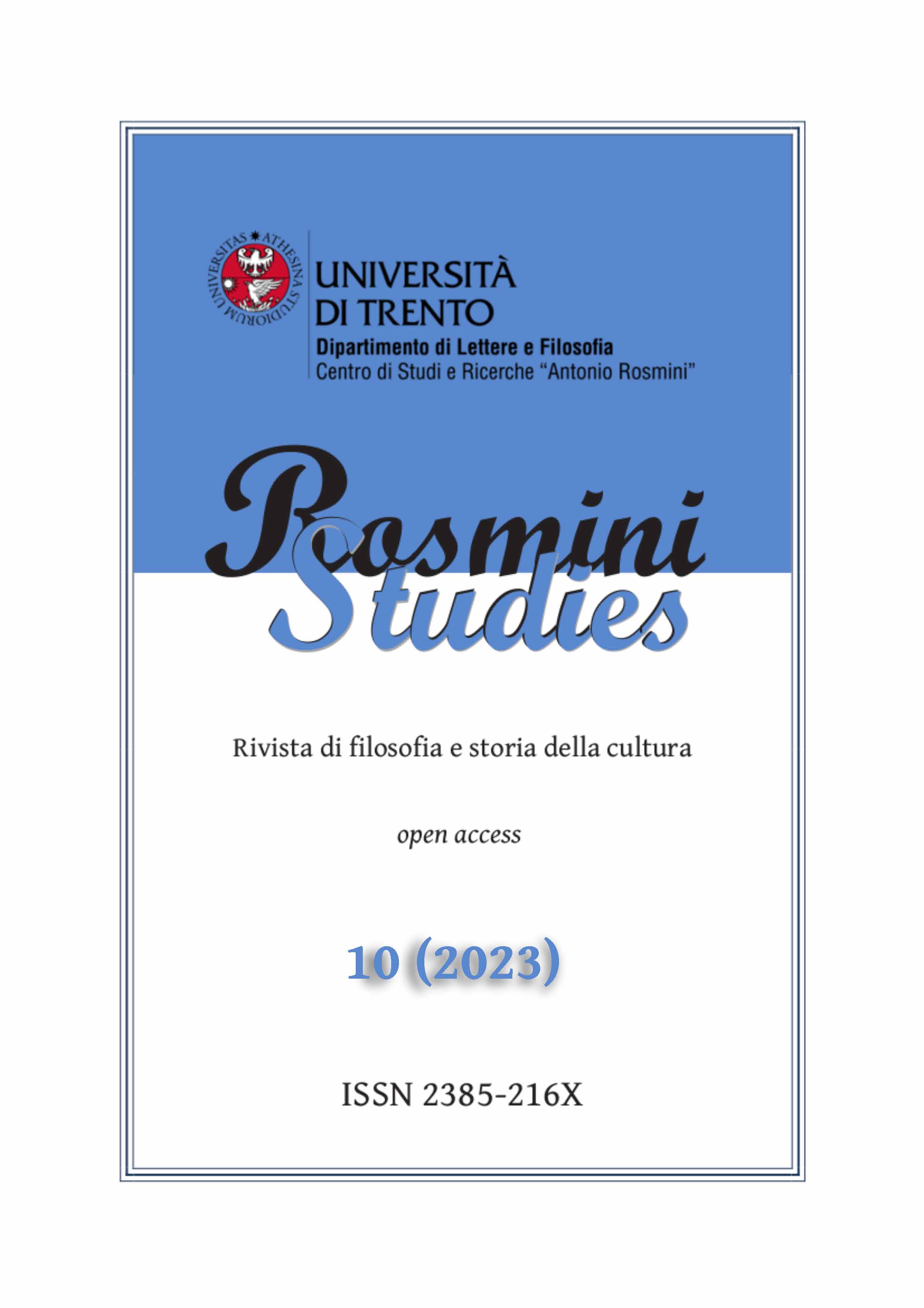Transcendence of thought, impersonality of consciousness. Hegel, Green and the Critique of Seth
DOI:
https://doi.org/10.15168/2385-216X/2536Keywords:
Idealismo, Trascendenza, Immanenza, Averroismo, Thomas Hill Green, Andrew Seth Pringle-Pattison, HegelAbstract
Starting from an indication by Deleuze, according to whom even transcendental philosophy fails to arrive at an adequate concept of immanence, the essay sets out to test this assumption by studying the way in which, in the history of idealism, thought has been understood as 'transcendent' with respect to individual thinking selves. This feature emerges particularly clearly in the parable from Hegel to the father of British Idealism Thomas Hill Green, whose theory of eternal consciousness was criticised by another idealist philosopher, Andrew Seth Pringle-Pattison, as a modern form of averroism.
Downloads
Published
Issue
Section
License
Copyright (c) 2023 Rosmini Studies

This work is licensed under a Creative Commons Attribution-NonCommercial-NoDerivatives 4.0 International License.



